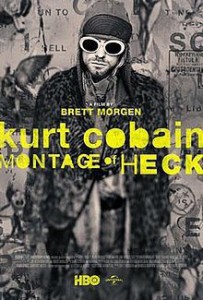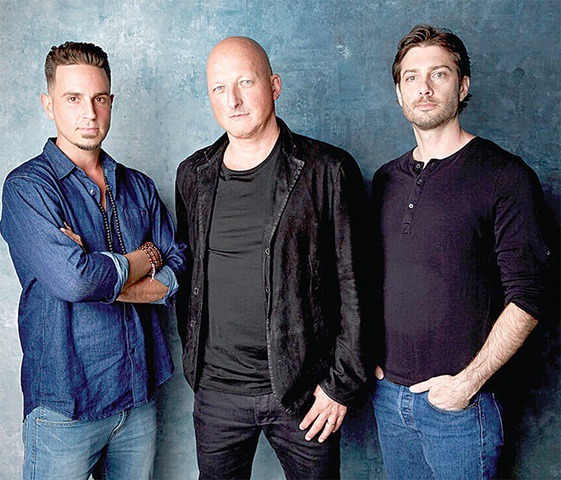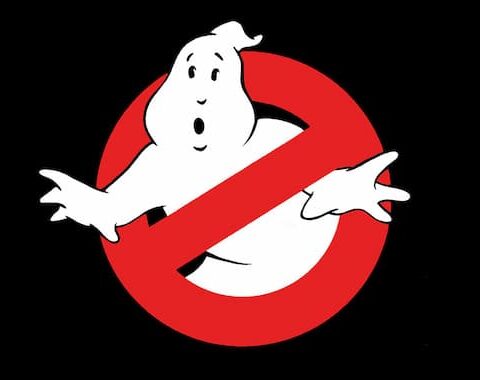Leaving Neverland is a very difficult thing to react to.
Because, the way it is constructed, it leaves no real room for any diversity in interpretation. The way it is constructed, there’s only two possible reactions: either you believe it wholly or you dismiss it as a lie.
It’s very difficult to be anywhere in the middle: because the filmmaker Dan Reed has basically eliminated any ‘middle’.
The film asks no questions, but simply – and relentlessly – hammers home a statement: this guy was a sinister paedophile and this is our story. Believe it or don’t.
Again, as I’ve done each time I’ve covered this subject, I’ll say this: I have no idea whether Michael Jackson is guilty or innocent. I don’t have a solid opinion. All of the claims in Leaving Neverland might be true.
Or they might be fabricated.
But aside from the questionability of ‘trial by media’, Leaving Neverland is also an effective exercise in how to drain you into submission by relentless repetition of a particular idea, image or accusation.
That has to be a reason why this film is almost four hours in length, when it really didn’t need to be: anyone who sits through the entirety of it is left exhausted and unable to shake off the sickly feelings.
As I mentioned in the other article, I spoke to someone I know, for example, and she’s been a big Michael Jackson fan her whole life: she told me she “100 percent believes” the claims in Leaving Neverland. Which I found surprising, as I’m not really as much of a Michael Jackson fan as she is and yet I wasn’t particularly swayed one way or the other.
Strangely, I found myself often believing Jimmy Safechuck‘s testimony, but not Wade Robson‘s: which isn’t very helpful. But, based on facial behaviour and body language, Safechuck came across as someone talking about real memories and real trauma.
However, the fact that Robson came across as an actor playing a role creates an obvious problem with the whole narrative. Furthermore, the two mothers both came across as unrepentent, even slightly psychopathic, characters: their version of events didn’t make sense at all.
Safechuck’s mother also, bizarrely, laughed while talking about her son’s alleged abuse at the hands of Michael Jackson. No shit – she was literally laughing, and in some other instances smiling. Giggling, in one scene, she says “I wanted to know what was going on in the room. My son doesn’t know this but I would go to the door and try to hear what conversation was going on and then I’d sneak away…”
The behaviour of the mothers is suspect, to say the least. In both cases, they apparently changed their entire lives to take their kids to go live in Michael Jackson’s vicinity – leaving their husbands (the fathers) behind. We’re told both fathers ended up committing suicide after the abandonment.
And yet, through the discussions in Leaving Neverland, neither of the women seems sincere or genuinely remorseful. It’s no surprise then Safechuck apparently disowned his mother: and this seems to be a common theme, with Jordy Chandler, for example, having legally divorced his own parents.
So, as I asked in the earlier piece about the Jackson allegations, were the mothers pimping out their kids? In exchange for money, getting to live some of the high life, and getting to fraternise with a superstar?
Leaving Neverland does nothing to dispel that possibility: and there’s something bizarre about Safechuck’s mother laughing about her son’s abuse. What I found odd, watching both of the mothers, is that they didn’t seem to believe that Jackson had really abused their respective sons: based on body language and mannerisms, as well as on what they were actually saying, they didn’t seem to have much conviction in their own story.
At times, it was almost as if they were both struggling to accept their respective sons’ narratives.

Robson also comes across as bitter – not about the alleged sexual abuse, but about the fact that Jackson later switched his affections to other children, like Macaulay Culkin (he says this in the film: that it made him unhappy). And again, to reiterate, this is the same guy who previously testified under oath in Jackson’s defense. Robson comes across, in the entire documentary, as someone who is still utterly obsessed with Michael Jackson and doesn’t know how to let go of Jackson’s promise or prophecy that he (Robson) would be a big star one day.
Again though, James Safechuck comes across more sincerely: so we’re left in a strange situation where one of the accusers seems unreliable and the other seems more reliable; and yet the latter only came forward apparently because of the former.
What I forgot to mention in the other article from a few weeks ago is that Robson dated Michael Jackson’s niece for some time – a relationship that presumably was either encouraged by Jackson or at least approved of by him. It’s very odd that Leaving Neverland doesn’t mention that at all, despite spending four hours talking about Robson’s experiences with Jackson and their alleged sexual relationship.
There’s something dubious about the fact that Robson has hours of screen time talking about his long experience with Jackson and never once mentions his relationship with the man’s niece.
But, coming away from the nitpicking, let’s get to the core of this.
What are we, as an audience, supposed to do with Leaving Neverland? And what are we supposed to think and feel?
An unguarded, emotional viewing of the film is tough: it is relentless, disturbing and sinister. It’s no wonder a lot of people were so drained by it.
A guarded viewing of the documentary, however, raises various questions. First, it’s entirely one-sided. The entire four-hour film consists of a handful of people (principally, the two young men and their mothers) talking to camera and telling their stories.
There is no rebuttal: no interest in getting input from additional or diverse voices. No attempt at a balance. Dan Reed could’ve sought out all kinds of people, for example, such as Corey Feldman, Macaulay Culkin, Sean Lennon, etc. Some of those might not have made themselves available for the film: but there presumably would’ve been plenty of other options (plenty of other children and parents), which could’ve created a more even-handed product.
But it’s clear that this wasn’t meant to be even-handed. And you could argue that it shouldn’t be even-handed: that the abuse victims should be allowed to tell their stories without interference.
Which is a valid argument: but it makes this film come across as measured, prefabricated propaganda rather than entirely honest or balanced filmmaking. Dan Reed never sought any comment or right of reply in regard to the Michael Jackson estate or anyone associated with Jackson.
In other words, it comes across as a film with an agenda. You could then argue that it’s ‘agenda’ is obvious and necessary – to expose Michael Jackson’s criminal and immoral behaviour. Which, again, is fine.
But – as either filmmaking or journalism – is it very poorly made.
I’ve looked at a handful of reactions specifically from other documentary filmmakers and they’ve all said this was very bad filmmaking.
Nothing in Leaving Neverland is fact or evidence based. It consists entirely of allegation. There is no investigative journalism, no follow-up research into the interviewees’ claims, no effort to back up the stories with corroborating testimony or facts. It’s possible that – this long after the events in question – this would’ve been nearly impossible.
Which is fine: but it nevertheless renders Leaving Neverland almost pointless – because nothing can be verified or supported, only alleged.
In filmmaking terms, it is pure impressionism and emotionalism: it is designed to impart an impression and provoke an emotional response – and to omit any other details or perspectives that might balance out or contradict the central narrative (for example, again, it’s odd that Dan Reed didn’t even mention Wade Robson’s relationship with Michael Jackson’s niece). It is not a pursuit of objectivity: but an entirely subjective exercise.

HBO, it could be noted, also commissioned the Kurt Cobain documentary film Montage of Heck – a film that got mixed reactions. While it was generally acclaimed, others – including people who knew Cobain, such as Buzz Osbourne and The Melvins – called the film total BS.
What many Cobain and Nirvana fans felt about Montage of Heck was that it was made primarily to counter the release of the Soaked in Bleach film – a film that was all about the conspiracy theories about whether Cobain really killed himself or was murdered.
I’ve never been wholly sure one way or the other where I stand on the Cobain ‘Murder or Sucide?’ question: but it was always curious that Montage of Heck was put out when it was, deflecting all attention away from Soaked in Bleach. I’m not convinced Soaked in Bleach is an entirely reliable narrative either: but Montage of Heck, like Leaving Neverland, also got a high-profile Sundance premiere.
Buzz Osbourne, who knew Cobain for years, was scathing of the film, claiming it was was a fiction, presenting a fictionalised version of Cobain. I have to say, speaking as someone who’s been a big-time Cobain/Nirvana fan for most of my life, I found Montage of Heck a jarring, confusing experience.
This is a very good analysis of the filmaking technique of both Montage of Heck and Leaving Neverland (I don’t know the guy’s name, but this is the YouTube link): where documentary filmmakers, including the Montage of Heck director, have actually spoken about framing their subjects based on emotion and impression and not necessarily on facts or evidence.
He argues the case here effectively that Leaving Neverland is more about feelings and less about facts; where the directors see it as a work of art or expression more than they see it as a form of objective journalism.
That analysis is drawn largely from a 2015 article at Fast Company, which highlights HBO’s approach to documentary filmmaking: and its admitted focus on documentary-making as art and “emotional truth” (note “emotional truth”, not necessarily factual truth). The article goes through some of HBO’s methodologies, citing various examples including the Kurt Cobain film Montage of Heck, and illustrates the focus on ‘cinematic language’ being used to create narratives with ’emotional clarity’.
It quotes Montage of Heck directer Brett Morgen from a Q&A, in which he says; ‘...there’s no such thing as an objective truth. There’s no such thing as an objective fact. But there is something called an emotional truth. That’s what I’m after, and I use real people’s lives...’
Which is fine from a creative/artistic point of view: but it doesn’t lend itself to an honest, balanced portrayal of events, especially when the subject matter concerns something as serious as alleged serial paedophilia.
In Montage of Heck’s case, this focus on ’emotional truth’ isn’t too much of a problem, because it was generally intended as a foray into Kurt Cobain’s mind: Kurt wasn’t being put on trial for anything. But in the case of Leaving Neverland – which very clearly follows this same ’emotional truth’ method – it’s a very different matter; because when the focus of a film concerns very serious allegations against someone, there’s no way “emotional truth” should be acting as a substitute for objective filmmaking.
But all Leaving Neverland consists of is excessive “emotional truth”, with nothing else offered: Leaving Neverland is “emotional truth” in bucket-loads, and completely devoid of any objectivity.
Even if Michael Jackson was guilty, it would still be a badly made film. Even at almost four hours in length, Leaving Neverland essentially tells us nothing – even while appearing to tell us everything.
In filmmaking terms, this kind of fits perfectly with the across-the-board lowering of standards in all media – specifically, the idea of this ‘post-truth’ world we’re supposedly in, where the emphasis now is all on feeling, perception and interpretation and not on objective facts. I talked about this a lot in an article here (which was about both the idea of ‘post-truth’ and the reality-tv overlap with the viewing public’s actual sense of ‘reality’): but this seems to be where we’re going.
Again, I have no idea whether Michael Jackson did these things to children or not: and Leaving Neverland does very little to make that any clearer.
Which is why it’s odd to me that so many people and organisations seem to have taken its content as gospel truth.
Read more: ‘A Tale of Four Movies: Pulp Fiction, Forrest Gump, Schindler’s List & the Shawshank Redemption‘, ‘Orson Welles & Citizen Kane: Seeking a Multi-Level Understanding‘, ‘The Michael Jackson Child-Abuse Conspiracy: A Critical Analysis‘, ‘Nirvana & the 1992 Reading Festival: Best Headline Act Ever…?‘





This documentary serves as a huge wake-up call across the globe. Because of it pedophiles have to work even harder to lure their victims and their victims families
Wade Robson and James Safechuck and all the other brave souls who reveal pedophiles are national heroes